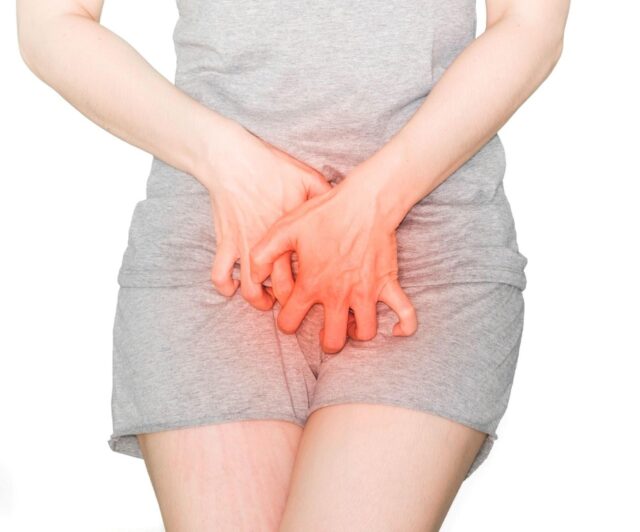In the realm of women’s health, there exists a silent discomfort that many endure with grace and resilience – vaginal itching.
Often unspoken, a quiet battle is fought, affecting women of all ages leaving them yearning for understanding, support, and a way to find relief.
In this article, we’ll understand the
- Causes of vaginal itching
- Its prevention
- And remedies
So, with open hearts and eager minds, join us to understand what’s going on down there.
Ready to dive in? Let’s get started!
Understanding Vaginal Itching
 © Shutterstock
© Shutterstock
People mistakenly use the term “vagina” when referring to the entire genital area, but that’s incorrect. Your vagina is just one component of your vulva, specifically the internal part. The vulva encompasses the external genitalia, including the labia, clitoris, urethra, and vaginal opening. Being precise with these terms promotes better understanding and communication about women’s anatomy.
Vaginal itching is often accompanied by redness, irritation, and swelling, caused by various factors such as infections, allergies, hormonal changes, or poor hygiene practices. Recognizing the symptoms and seeking timely medical advice is crucial to determining the underlying cause and finding suitable remedies.
Causes of Vaginal Itching
Vaginal itching can be caused by various factors, ranging from mild irritations to infections and underlying health conditions. Here are some common causes of vaginal itching.
1. Yeast Infection (Candidiasis)
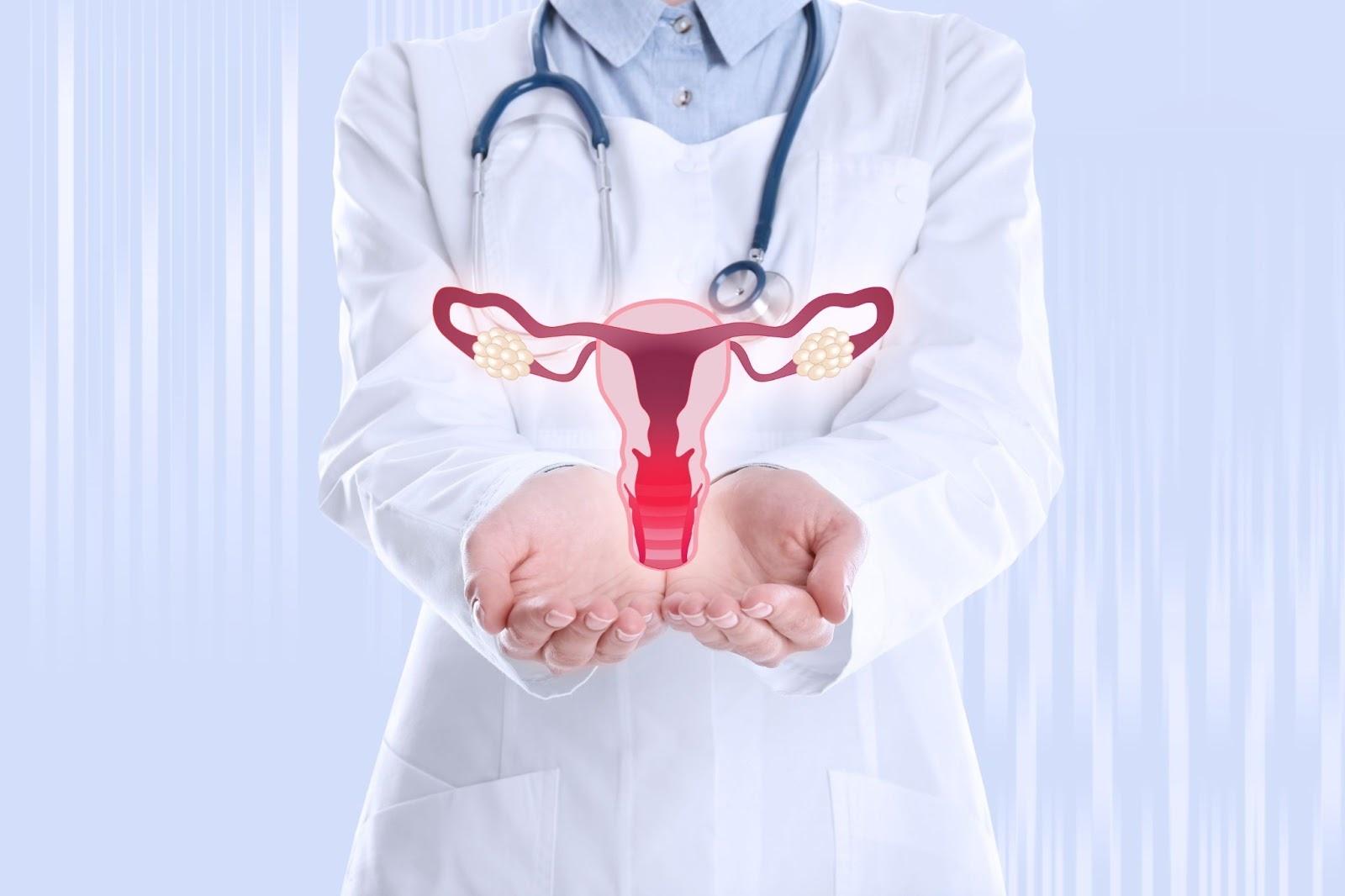 © Shutterstock
© Shutterstock
Candida albicans is a fungus normally present in the vagina. An overgrowth of this fungus can lead to a yeast infection, causing intense itching, redness, and a thick, white, cottage cheese-like vaginal discharge.
2. Bacterial Vaginosis (BV)
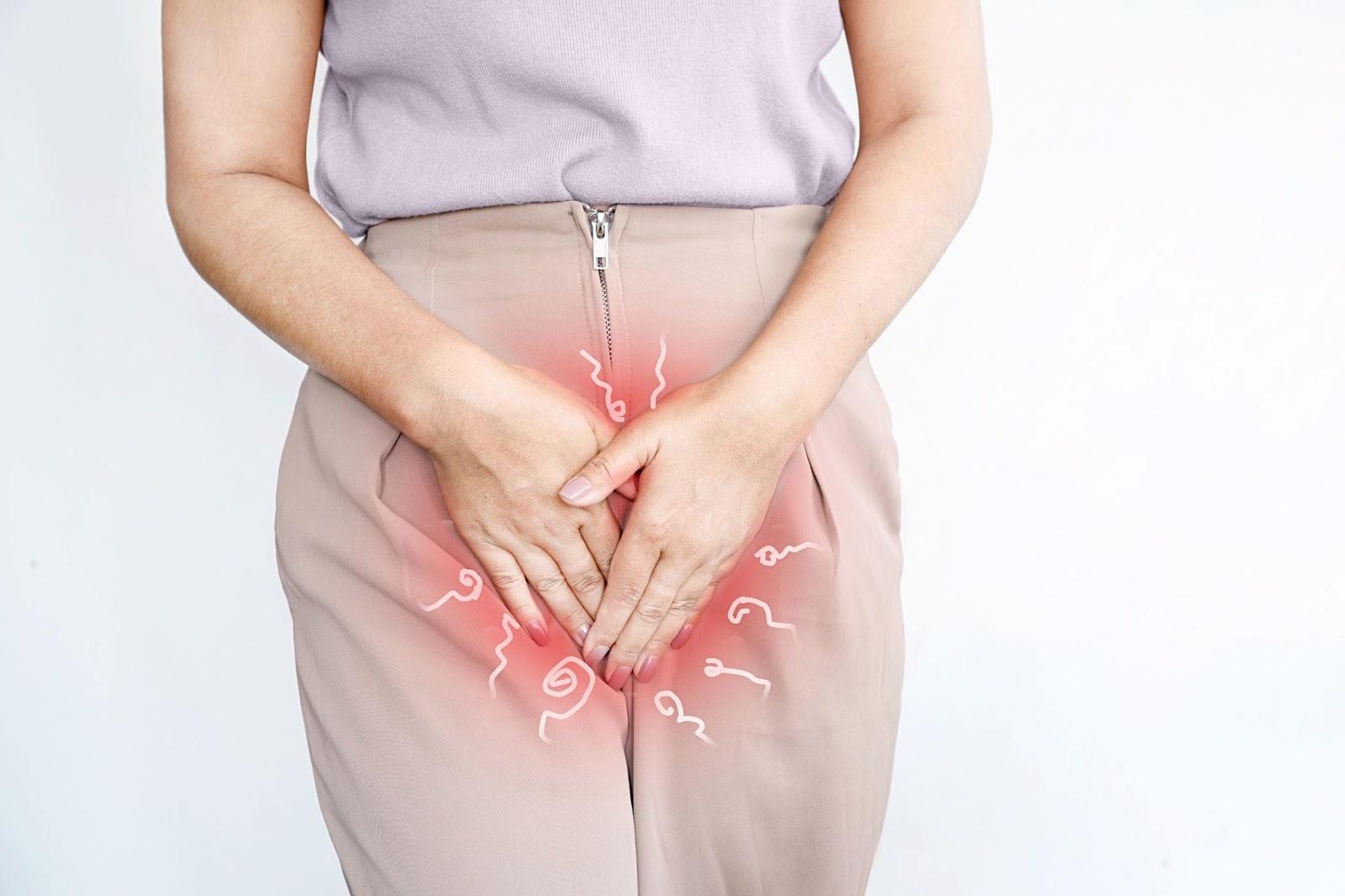 © Shutterstock
© Shutterstock
BV occurs when there is an imbalance in vaginal bacteria, leading to an overgrowth of harmful bacteria. It can cause itching, fishy-smelling vaginal odour, and thin, greyish-white discharge.
3. Sexually Transmitted Infections (STIs)
 © Shutterstock
© Shutterstock
Various STIs can cause vaginal itching, including trichomoniasis, chlamydia, gonorrhoea, and genital herpes. These infections may also be accompanied by other symptoms like abnormal discharge, painful urination, or genital sores.
4. Contact Dermatitis
 © Shutterstock
© Shutterstock
Irritation or an allergic reaction to certain substances like soaps, laundry detergents, scented products, condoms, or lubricants can lead to contact dermatitis. It causes redness, swelling, and itching in the genital area.
5. Menopause and Hormonal Changes
 © Shutterstock
© Shutterstock
Decreased estrogen levels during menopause can cause vaginal dryness and thinning of the vaginal tissues, leading to itching and discomfort.
6. Psoriasis or Eczema
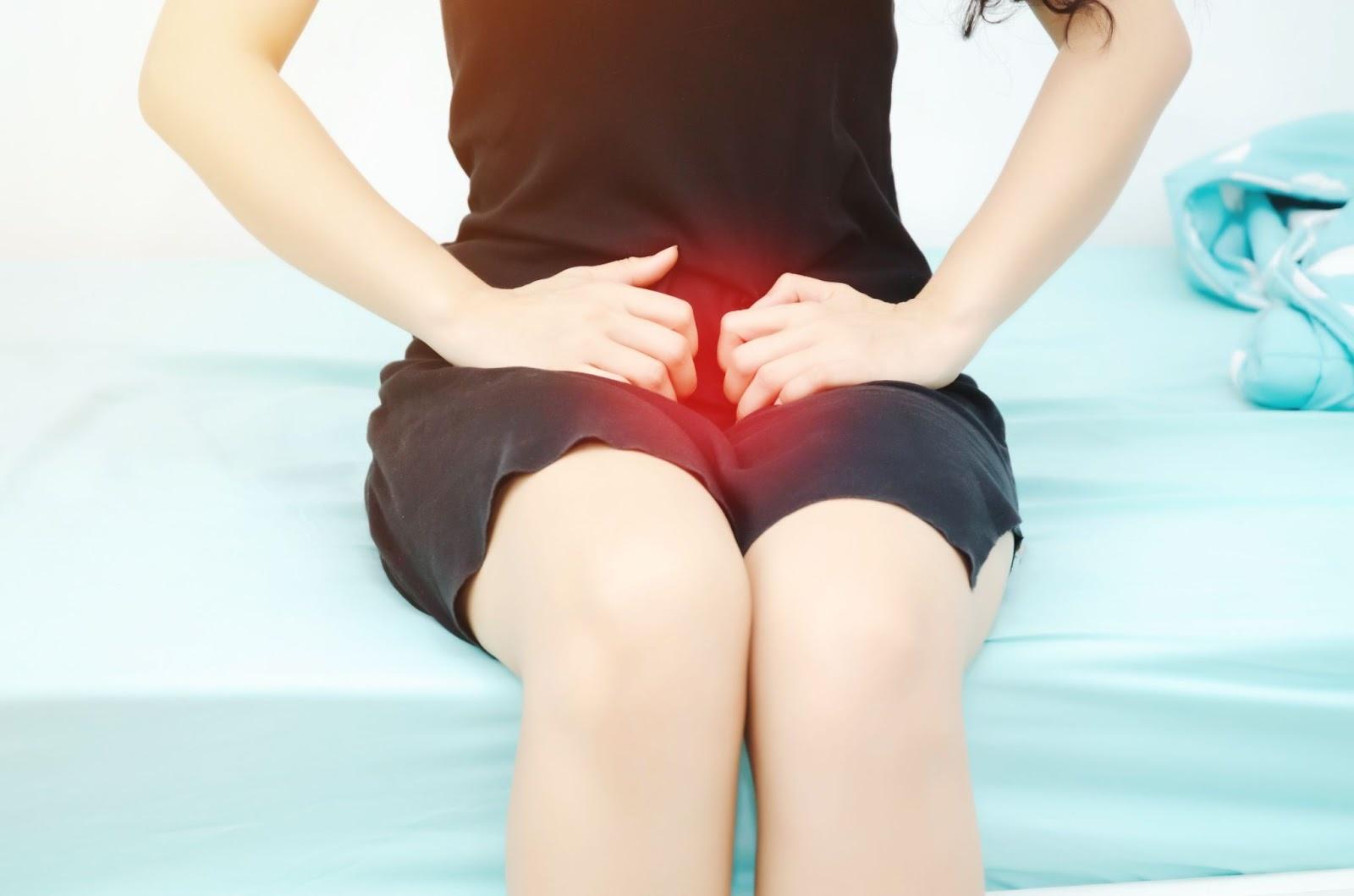 © Shutterstock
© Shutterstock
Skin conditions like psoriasis or eczema can also affect the genital area, leading to itching, redness, and flaky skin.
7. Foreign Objects
 © Shutterstock
© Shutterstock
Sometimes, objects like tampons, forgotten condoms, or retained toilet paper can cause vaginal itching due to irritation.
8. Hygiene Practices
 © Pexel
© Pexel
Poor intimate hygiene, such as using harsh soaps or douching, can disrupt the natural pH balance of the vagina and lead to itching.
9. Stress and Emotional Factors
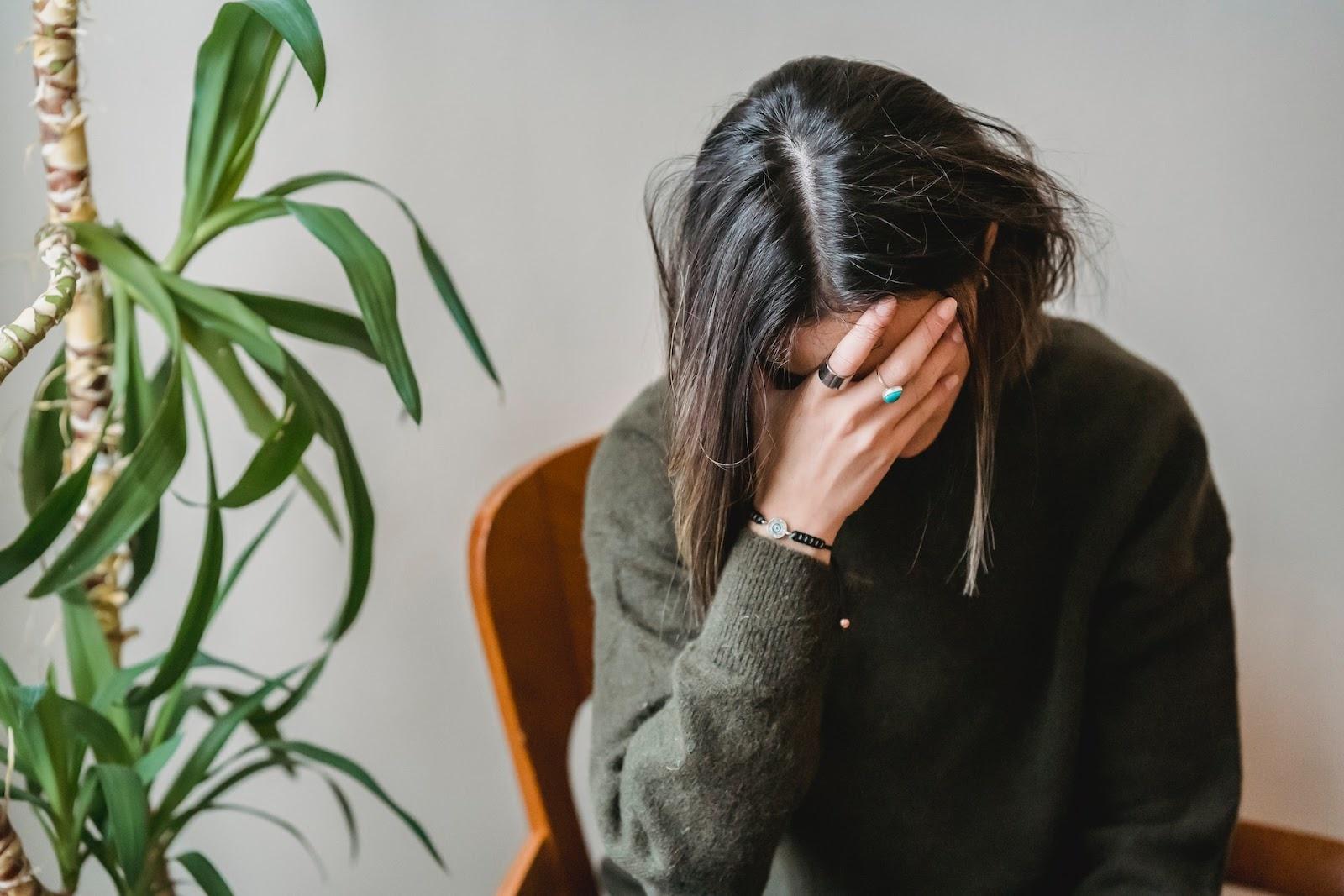 © Pexel
© Pexel
Emotional stress can exacerbate or trigger vaginal itching in some individuals.
Prevention of Vaginal Itching
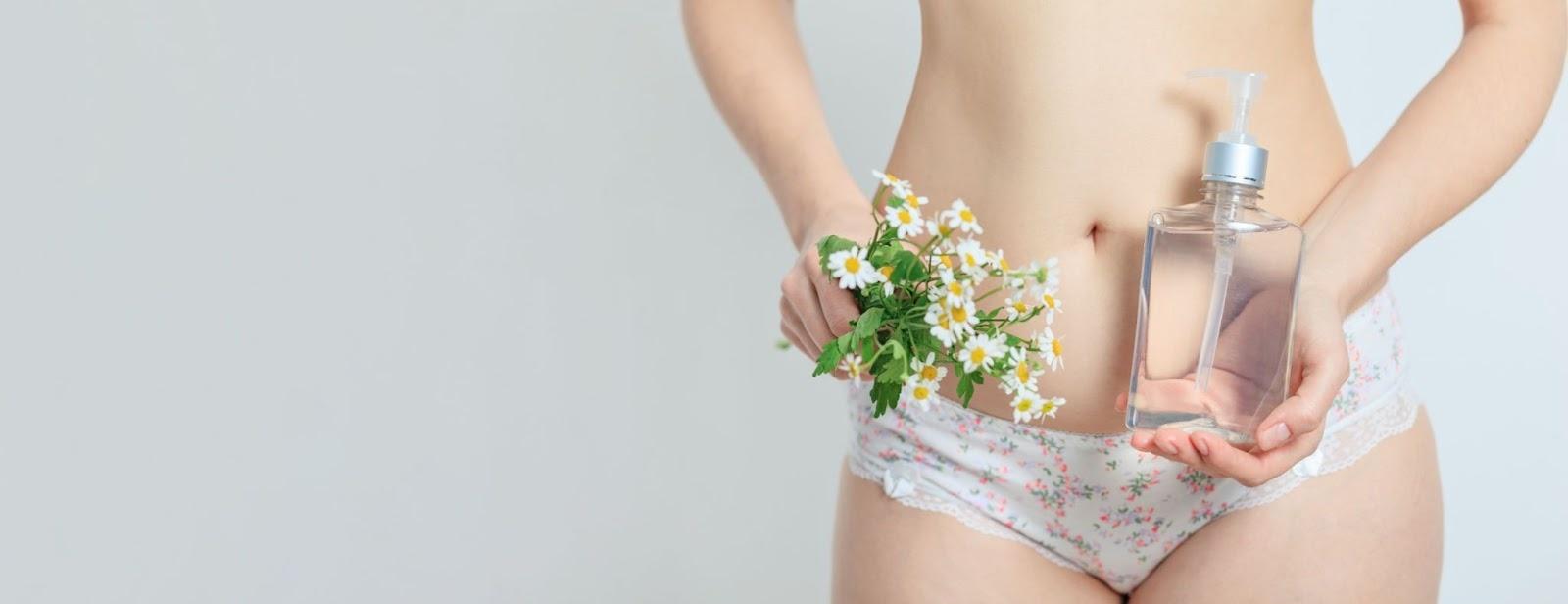 © Shutterstock
© Shutterstock
To reduce vaginal itching, consider the following tips,
- Maintain genital hygiene by keeping the area clean and dry.
- Opt for loose-fitting clothing and cotton underwear during the day, and allow your vagina to breathe without underwear while sleeping.
- Avoid using soap in the genital area, instead, rinse with water for gentle cleansing.
- Steer clear of douches, as they may disturb healthy bacteria that combat infections.
- Refrain from using hygiene sprays, fragrances, or powders near the vagina.
- If you have an infection, use pads instead of tampons.
- For diabetes patients, keeping blood glucose levels under control can also contribute to vaginal health.
Home Remedies for Vaginal Itching
Read on to find out some home remedies to alleviate vaginal itching.
1. Warm Water Soaks
 © Freepik
© Freepik
Taking a warm (not hot) bath can soothe irritated skin. Added colloidal oatmeal or a few drops of chamomile essential oil to the bathwater may also calm the itching.
2. Cold Compress
Applying a cold compress or ice pack wrapped in a clean cloth to the genital area can reduce inflammation and alleviate itching.
3. Coconut Oil
 © Freepik
© Freepik
Coconut oil has natural antibacterial and antifungal properties. Applying a small amount of coconut oil to the affected area can soothe itching and promote healing.
4. Plain Yoghurt
The probiotics in plain, unsweetened yoghurt can help restore healthy bacteria balance in the vagina. Applying yoghurt directly to the vulva or inserting it into the vagina using a tampon can relieve itching caused by yeast infections.
5. Tea Tree Oil
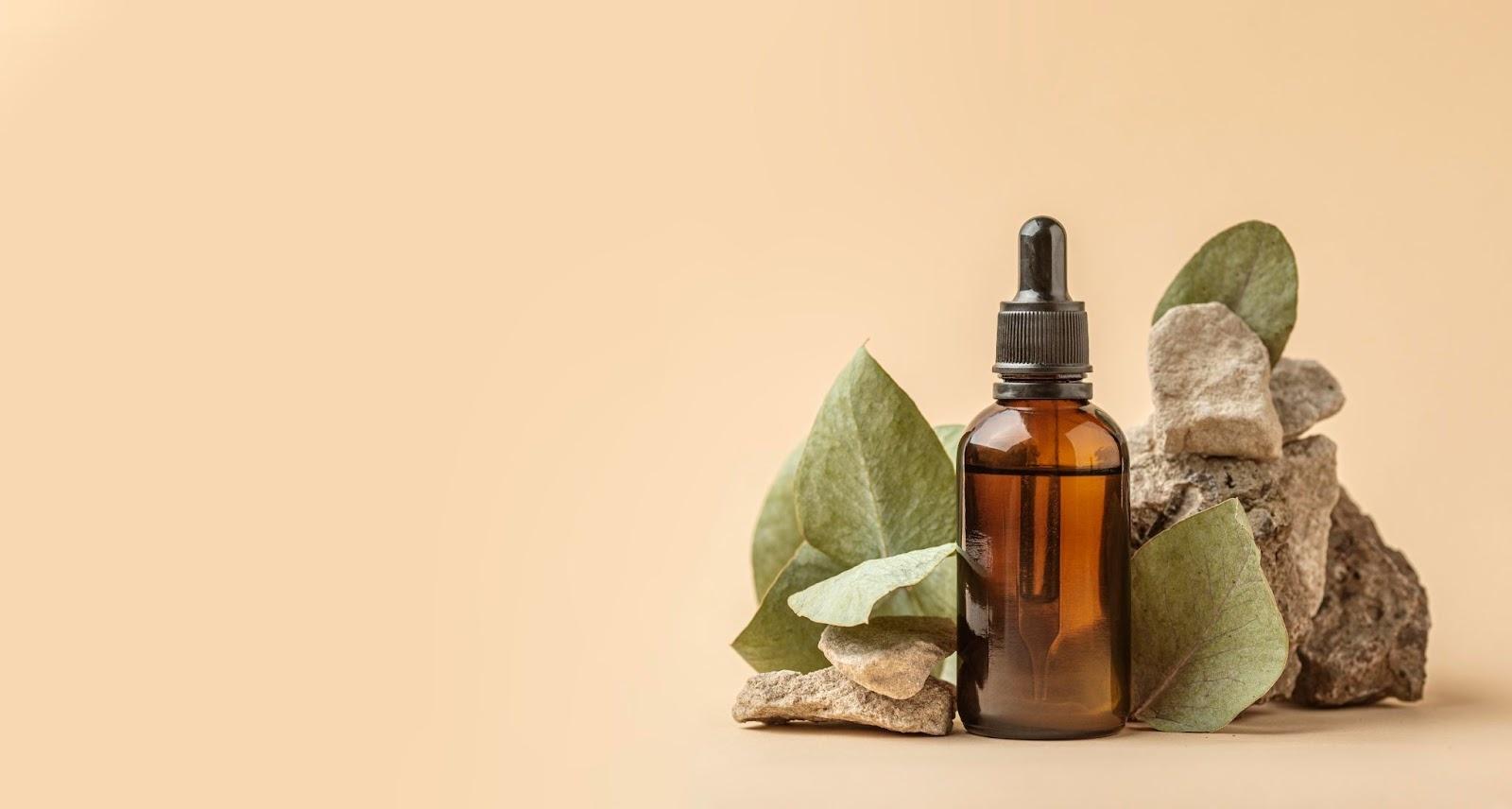 © Freepik
© Freepik
Diluted tea tree oil has antifungal properties that may treat vaginal itching caused by yeast infections. Mix a few drops of tea tree oil with a carrier oil (like coconut oil) and apply it to the affected area.
6. Apple Cider Vinegar
Adding a cup of raw, unfiltered apple cider vinegar to a warm bath can restore vaginal pH and relieve itching caused by infections.
7. Baking Soda
Adding a few tablespoons of baking soda to a warm bath can soothe itching and reduce inflammation.
Note – Always perform a patch test before applying any substance to a large area of the skin. However, it’s essential to remember that these remedies should not replace professional medical advice if the itching persists or is accompanied by other concerning symptoms.
Medical Treatments for Vaginal Itching
 © Shutterstock
© Shutterstock
Once your healthcare professional determines the underlying cause of your vaginal itching, they can recommend treatment options to provide effective relief. Some medical treatments for vaginal itching include,
1. Antifungal Medications
Antifungal medications treat fungal infections, such as candidiasis (yeast infection). These medications may be creams, ointments, suppositories, or oral tablets.
2. Antibiotics
 © Pexel
© Pexel
Antibiotics are used to treat bacterial infections, such as bacterial vaginosis or certain sexually transmitted infections (STIs) like gonorrhoea or chlamydia.
3. Vaginal Moisturizers and Lubricants
For postmenopausal women or women experiencing vaginal dryness, using vaginal moisturizers and lubricants can alleviate itching and discomfort during sexual intercourse.
4. Hormone Therapy
 © Shutterstock
© Shutterstock
Postmenopausal women experiencing vaginal itching due to atrophic vaginitis (thinning of the vaginal walls) may be prescribed hormone therapy to restore vaginal moisture and elasticity.
5. Allergy Management
If the itching is caused by an allergic reaction, identifying and avoiding the triggering allergen is essential. Antihistamines may also be prescribed to relieve the itching caused by allergies.
6. STI Treatment
 © Shutterstock
© Shutterstock
If the itching is a symptom of a sexually transmitted infection, treatment for the specific infection will be provided to clear the infection and alleviate symptoms.
Who Experiences Vaginal Itching?
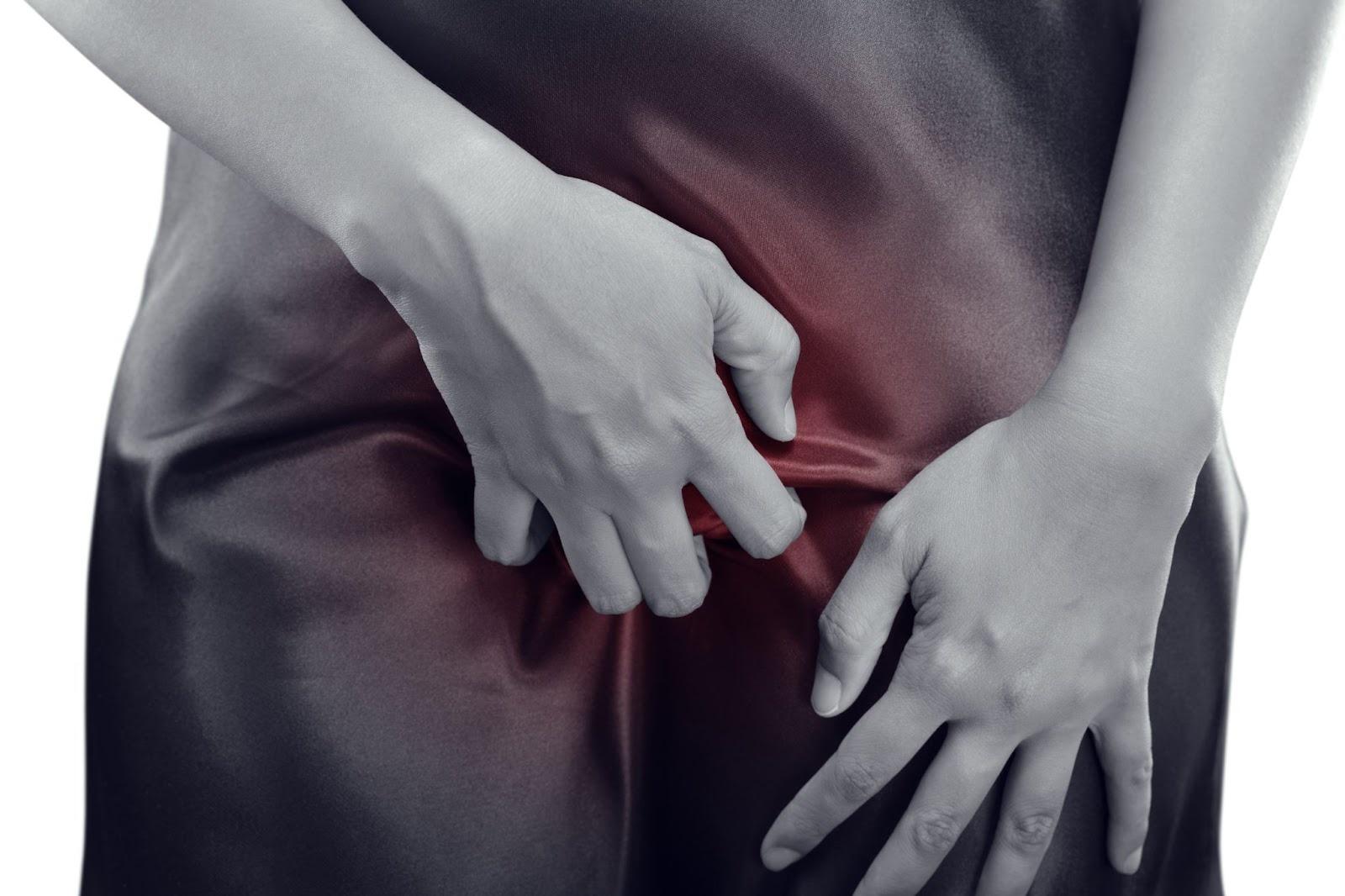 © Shutterstock
© Shutterstock
Vaginal itching can affect individuals of all ages, presenting different causes and potential triggers.
Children
- Vaginitis often results from improper wiping or inadequate handwashing after bowel movements.
- Inflammation from bubble bath chemicals or soaps.
- In some unfortunate cases, vaginal itching may be associated with sexual abuse.
Women of reproductive age
- Bacterial vaginosis.
- Candidal vaginalis (yeast infection).
- Trichomonal vaginitis.
- Infections such as gonorrhoea and chlamydial infections.
- Genital herpes.
- Irritation or allergic reactions to clothing, detergents, soaps, creams, condoms, and other products.
Postmenopausal women
- Atrophic vaginalitis, is a condition resulting from decreased estrogen levels after menopause.
- Vaginal, cervical, or endometrial cancer may itch.
- Chemical vulvitis in women who are incontinent or bed bound.
- Similar to women of reproductive age, irritation or allergic reactions to various products may contribute to itching in postmenopausal women.
When to Consult a Healthcare Professional
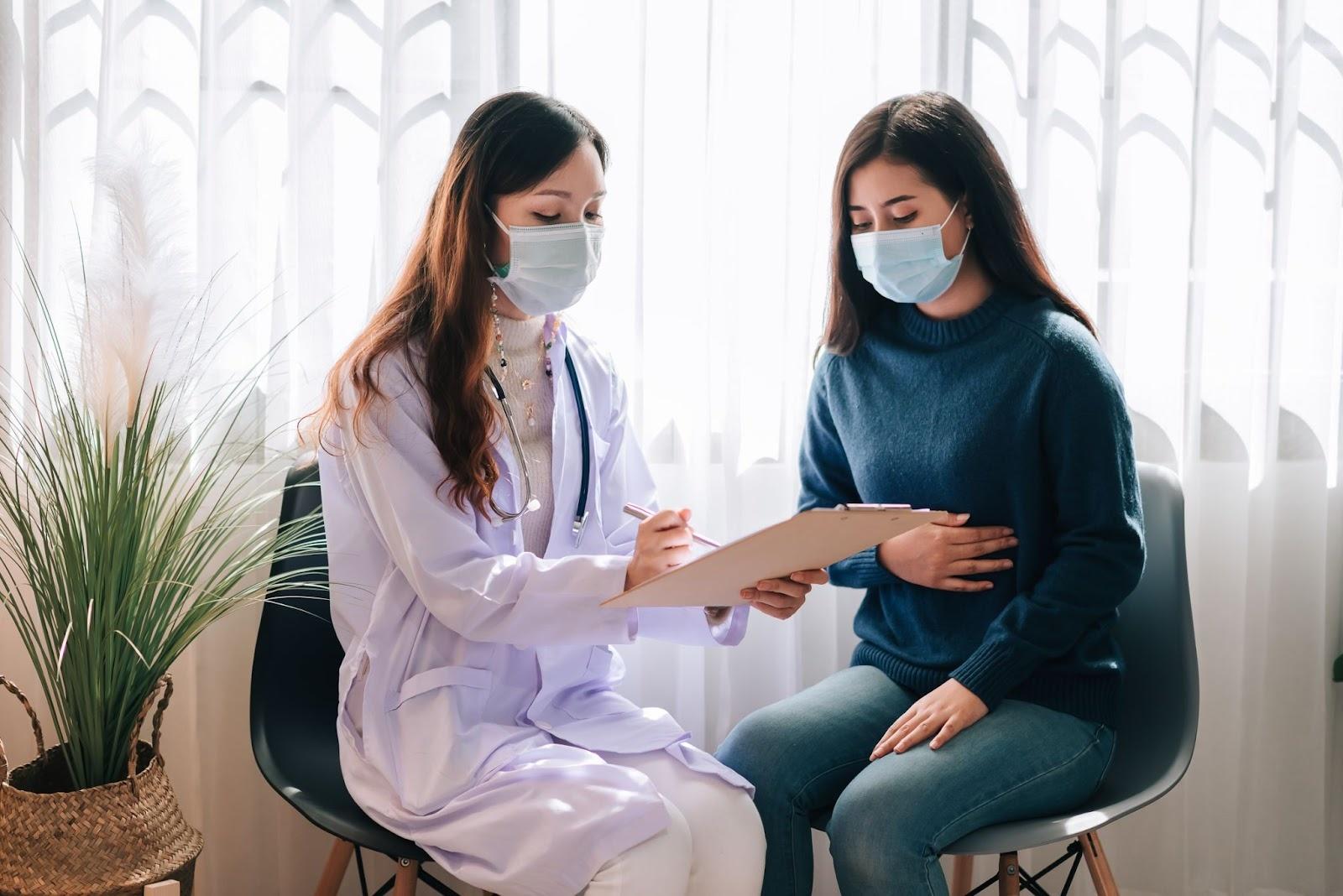 © Shutterstock
© Shutterstock
Seeking medical attention for vaginal itching is essential, especially when the symptoms disrupt daily life or sleep. While many causes of vaginal itching are not serious, a healthcare professional can help identify and treat the underlying issue, providing guidance and, if necessary, prescribing medication for relief.
- It is crucial to contact a healthcare professional if vaginal itching persists for more than a week, or is accompanied by other symptoms, such as,
- Ulcers or blisters on the vulva, which may indicate an infection or skin condition.
- Pain or tenderness in the genital area, which could be a sign of inflammation or infection.
- Genital redness or swelling, indicating irritation or allergy.
- Difficulty urinating, which might be associated with a urinary tract infection or other urinary issues.
- Unusual vaginal discharge, as it could indicate an infection or other reproductive health concern.
- An infection, dryness, or inflammation cause discomfort during sexual intercourse.
Conclusion
Vaginal itching is a common concern that affects individuals of all ages, ranging from children to postmenopausal women. While most cases are not serious and can be addressed with simple home remedies or over-the-counter solutions, persistent or severe itching should prompt a visit to a healthcare professional. Maintaining healthy vaginal health, practising proper hygiene, and seeking timely medical attention when needed are vital steps to promote comfort, confidence, and overall well-being.
References
1. https://www.ncbi.nlm.nih.gov/pmc/articles/PMC7081372/
2. https://www.sciencedirect.com/topics/pharmacology-toxicology-and-pharmaceutical-science/vaginal-pruritus
3. https://www.emedihealth.com/womens-health/menstrual-health/vaginitis
Special Story [widgetId: 20261]

